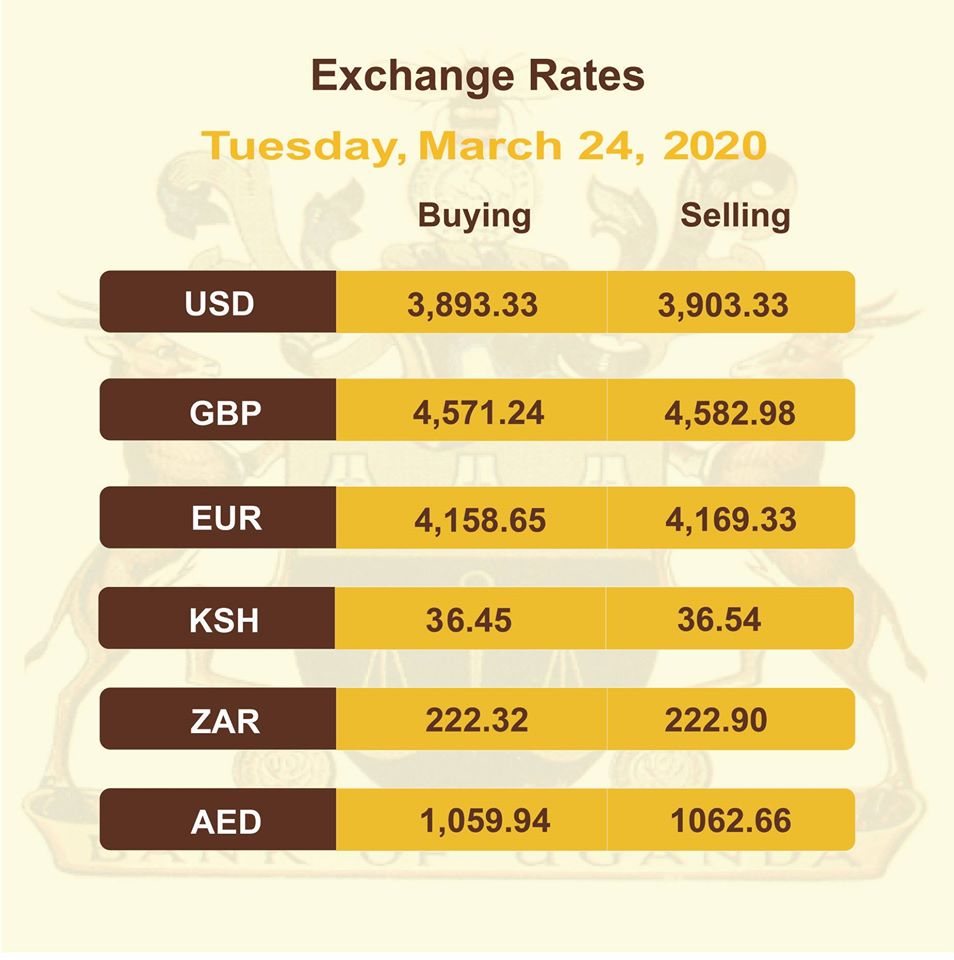The Uganda shilling continues to post significant losses as market swings into a panic mode driven by the uncertainty over the potential economic fallout of the Corona pandemic.
On Tuesday March 24, 2020, Bank of Uganda (BoU) quoted the local unit trading at 3893.33/3903.33 against the US dollar.
“The local currency is on a rapid fall as demand for the world main funding and settlement currency continue to escalate to unprecedented levels. The spreads on the shilling were widening as investors continued to flee from riskier assets,” Stephen Kaboyo, an analyst and Managing Director at Alpha Capital Partners said on latest developments.
He added: “The pressure on the shilling is expected to get worse before it gets better, testing record levels, as the mad scramble for the dollar is expected to increase even further in line with the trend in the global markets.”
He added that any efforts to defend the currency at this stage would be wasted effort because of the sentiment driven weakness of the shilling.

Given the fact that Uganda is a high net importer, the shilling depreciation will make her imports expensive in shilling terms during this crisis.
It means that traders who import merchandise will have to pay more shillings to buy dollars needed to import the goods.
This automatically will lead to an increase in prices of the many imported goods which may lead to inflation.
In an earlier interview, Kaboyo, an analyst and Managing Director at Alpha Capital Partners said: “The depreciation of the Shilling instantly hits consumer purchase power, prices of imported goods soar and inflationary pressures increase.”
He added: “It also results in loss of confidence by international and domestic investors and this could lead to capital flight. Of course one can argue that the economy can adjust but the pace of adjustment will depend on how domestic industries pivot towards import replacement and exporting.”
Additionally, even locally produced goods such as beverages, construction materials, cosmetics and printing materials among others are manufactured using imported raw materials.






